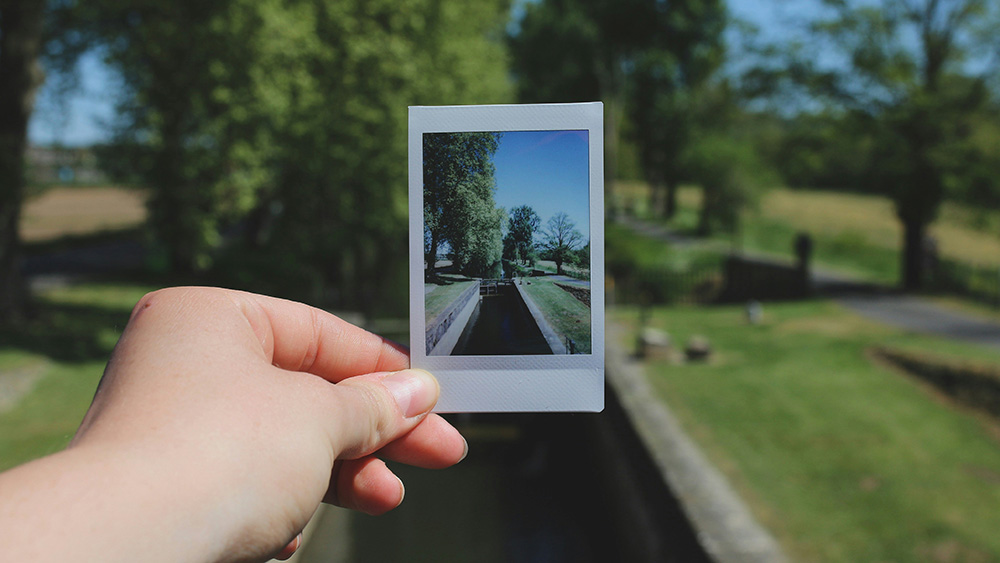
Gen Z is enjoying its digital downtime, including popularizing analog products such as Polaroid cameras. (Ellie Adams photo via Unsplash )
I consider myself a “zillennial” — the micro demographic born toward the end of the millennial generation and the beginning of Gen Z, specifically designated to people born between 1992 and 2002 who share experiences and mindsets with both generations. In elementary school, I spent Friday nights at Blockbuster selecting VHS tapes, but my parents never had to worry about excessive screentime. My first cell phone was a flip phone — a maroon LG enV, which I found incredibly stylish at the time, and only used to call my mom in a pinch. I listened to my taxi-yellow Walkman CD player every morning before junior high. YouTube launched when I was 12 — its content was not so addictive back then, consisting of people filming backflips and homemade music videos — and Facebook became the most-visited social media website when I was 15. The year I graduated high school, the use of smartphones became commonplace. My childhood was largely light on technology, until it started to rapidly unfold around me.
Straddling that millennial/Gen Z line with technology is probably why I feel so drawn to the trend “Luddite Mode,” highlighted in the recently published “The Future 100: 2024” report from VML Intelligence, the futurism, research, and innovation unit of global creative agency VML. “Gen Z is seamlessly switching between moments of connectivity and digital withdrawal,” the report said, adding that Voxburner’s “Youth Trends” report confirmed 54 percent of the 1,000 16- to 24-year-olds polled worry about spending too much time on social media. Their fix for this fear is crossing into “Luddite Mode” when they need focus or calm, with the New York-based teenage lifestyle group “The Luddite Club” leading the charge on liberation from technology.
Meetings and events have been embracing the increasing need for calm in a hectic world. This includes the growing presence of quiet rooms at events, which serve as neuroinclusive spaces and also allow any attendee to disconnect and unwind during otherwise busy events. Newly constructed and renovated hotels and convention centers also are creating peaceful environments with the inclusion of natural elements — living walls, water features, plenty of natural light, and ample indoor/outdoor flexible space.
“Exposure to nature has been linked to how well we think and collaborate, and with boosting focus and creativity,” Barbara Palmer, Convene’s deputy editor, wrote in 2021. Citing research published by Psychological Science, disconnecting from the digital world and looking at natural beauty can help us recover from demands on our attention.
“The attention we pay to nature,” she wrote, “is effortless and rejuvenates us.”
Casey Gale is managing editor of Convene.
